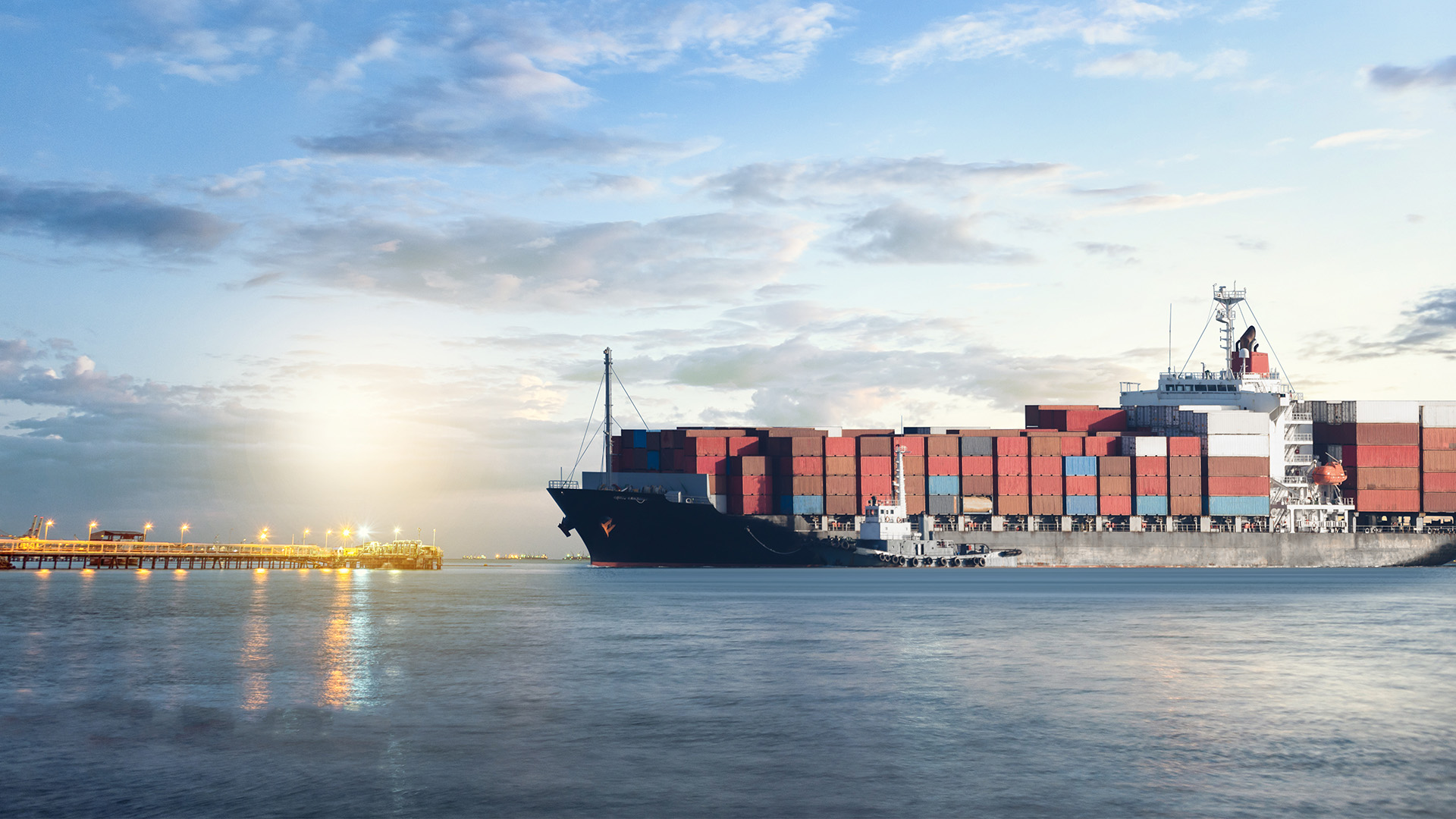A new form of security following the declaration of general average (GA) has the market wondering if a real change has occurred. In brief, the answer is a resounding “no”, although the process is slightly simpler and the new form has some provisions that the marine insurance market needs to be aware of.
GA is an ancient legal principle which is well known to the South African marine insurance market and has had significant exposure on casualties such as the mv Sealand Express, mv Kota Kado, mv MSC Napoli and the mv APL Austria. GA is a legal mechanism by which shipowners recover costs that they have incurred in saving a ship and her cargo by which all of the saved interests contribute pro rata to those costs. Depending on the nature of the casualty and the extent of the expenses incurred, underwriters’ contribution to GA can be extensive. Owners recovered a 45% contribution on the MSC Napoli and a 100% contribution on the Kota Kado. Generally speaking however, GA contributions are in the region of 10% of the value of the saved cargo and ship.
A GA adjustment can be a lengthy process with the Kota Kado only being finalised a decade after the grounding. It also carries a heavy burden in terms of costs and administration time, particularly on large containership fires or groundings. Although its principles are long and well established, there have been growing calls over the last few decades for shipowners to abandon the practice of declaring GA. It has however survived, but many of the larger container operators and carriers no longer declare GA. Instead they pay an additional premium to their P&I Club to cover what would have been cargo underwriters’ contribution in GA. This is partly to avoid the delays, costs and administrative burden of GA and partly as a service to the carriers’ customers.
Once an owner declares GA, it is entitled to exercise a lien over any property on board the ship which is usually the cargo, the containers and the fuel owned by time charterers. In order to secure the release of that property from the lien, the owners and insurers of the cargo have to provide security to the shipowners for the anticipated GA contribution. Uninsured property owners have to pay a cash deposit which is held by the nominated GA adjusters pending the issuing of the adjustment and resolution of any disputes arising out of it. The vast majority of cargo is released against provision by the cargo owner of a GA bond and by the cargo insurer of a GA guarantee.
The purpose of the bond is to provide an undertaking from the cargo owner to ultimately pay to the shipowner any amount due in GA. The guarantee effectively provides that the insurer undertakes to pay whatever amount the cargo owner is held to have to pay.
The effect is that, when there is a GA, cargo owners and their insurers have to provide and assess the documents relating to the contract of sale and the contract of carriage. This is to ascertain which party to a particular bill of lading was on risk at the time of the casualty and accordingly has to provide a GA bond and guarantee. This can lead to considerable debate, particularly if a casualty takes place shortly after the vessel sails from a loading port. Cargo interests have to carry out a survey of the cargo to determine its value after the casualty as their contribution in GA and the extent of security required, is determined by reference to the value of the cargo after the casualty. If it has no value, there is no GA contribution. If it is partly damaged then their contribution is reduced to the GA proportion of the value of the damaged cargo.
Once this process has been completed, the cargo owner has to sign a GA bond providing details of the cargo and its value and agreeing to pay whatever amount is ultimately held to be due in GA. The insurers have to provide a guarantee containing the same details and an undertaking to pay whatever amount is ultimately held to be due by the cargo owners. Both parties submit to the jurisdiction of a forum, which is typically arbitration in London, to resolve any disputes.
Partly in response to the concerns regarding the continued use of GA, the Comité Maritime International (CMI) recently released a new form of general average security designed in part to simplify the process. CMI is the global umbrella body for maritime law associations. In June 2024 the CMI produced a new form of GA guarantee. In the event of recent casualties such as the Northern Juvenile and Maersk Frankfurt, cargo interests now only have to provide a GA guarantee, rather than a GA bond and GA guarantee if the cargo is insured.
The previous GA bond and GA guarantee and the new GA guarantee are contracts between the cargo owner and shipowner and between the cargo insurer and shipowner. There is no prescribed form although most adjusters use similar forms. Adjustors always claim that no amendments to the forms will be accepted, but the reality is that the terms of the bond and the guarantee are open to negotiation and we have persuaded owners to delete certain provisions in the past.
The wording of the new guarantee is very similar to the GA bonds and guarantees that the market is familiar with. This will be discussed further below. The only significant change is that the insurers who sign the GA guarantee now confirm that:
“This guarantee shall be valid and enforceable irrespective of the existence or terms of any separate undertakings given by the property owner and any provisions in the insurance on the property.”
This means that cargo owners no longer have to provide a GA bond.
Insofar as the terms are concerned, the form contains three terms which insurers need to consider before signing them.
The first is an undertaking by the insurers to make payment on account on a without prejudice basis to their rights to dispute the amount in the final adjustment. This is an undesirable clause. It effectively says that if the GA adjuster asserts that an amount is due by a cargo interest, the underwriter must pay it. The undertaking is however watered down to some extent to by the fact that a contribution must be “properly and legally due”. In the past, this has been used to argue that a provisional payment in GA is not going to be made on the basis that the cargo owners dispute that it is properly and legally due. This is to prevent the situation of having to pay GA and then institute proceedings against the shipowners to recover the amount paid.
Liability to pay a GA contribution can only be avoided if the cargo owner can show that there has been a breach by the shipowner of its obligations under the contract of carriage evidenced by the bill of lading. This entails proving on a balance of probabilities that the shipowners failed to exercise due diligence to make the ship seaworthy and that failure caused the loss which gave rise to the casualty. This is often difficult to do particularly if the casualty takes place well away from ports and courts where evidence can more easily be secured as to the cause of, for example, the fire and the measures taken by the shipowners to ensure that the vessel is seaworthy insofar as firefighting equipment is concerned.
In an attempt to avoid any debate about this clause, the guarantee does provide that anybody who makes a payment on account can do so against a demand for the provision by shipowners of countersecurity for the amount paid. This will assist in ensuring that shipowners and their adjusters do not advance a claim for provisional payment in GA in circumstances where they are not satisfied that the contribution is properly and legally due.
The second issue is that it is agreed that prescription or a time limitation only begins to run once the GA adjustment has been issued. This means that in an extremely complicated casualty, the prescription period under the applicable law only commences once the final adjustment is issued and not when the cargo is released to the cargo owner.
This undertaking does not change the legal position except in a few jurisdictions where it has been held that a shipowner must commence proceedings within the time limit and that time starts to run when the cargo is released and not when the GA adjustment is issued.
The third issue is that the guarantee is confirmed to be without prejudice to any remedies or defences of the parties to their common maritime adventure arising under the contract of carriage. On its own, this provision achieves nothing because parties either have rights or do not have them and there is no need. Stating that a party has rights does not creates any new rights and a failure to assert them does not waive them. The guarantee however then goes on to say that any defences of, for example, the cargo owner to a GA contribution “should” be notified to the adjuster within three months of the date of the issue of the adjustment. This seems to be an attempt by the shipowners and adjusters to compel cargo interests to either pay or dispute liability within three months rather than within six years under English law, three years under South African law or one year under the contract of carriage.
The fact that cargo insurers only “should” notify of a dispute within three months means that this a request for notification rather than the imposition of a three month time limitation.
Cargo owners will no doubt welcome the fact that they no longer have to sign a GA bond. Cargo underwriters’ position has however not changed with the introduction of the new form. Subject to the comments above regarding payments on account and time limitation, cargo underwriters are in the same position as they were before the new form was introduced. GA remains an expensive thorn in the side of underwriters.




